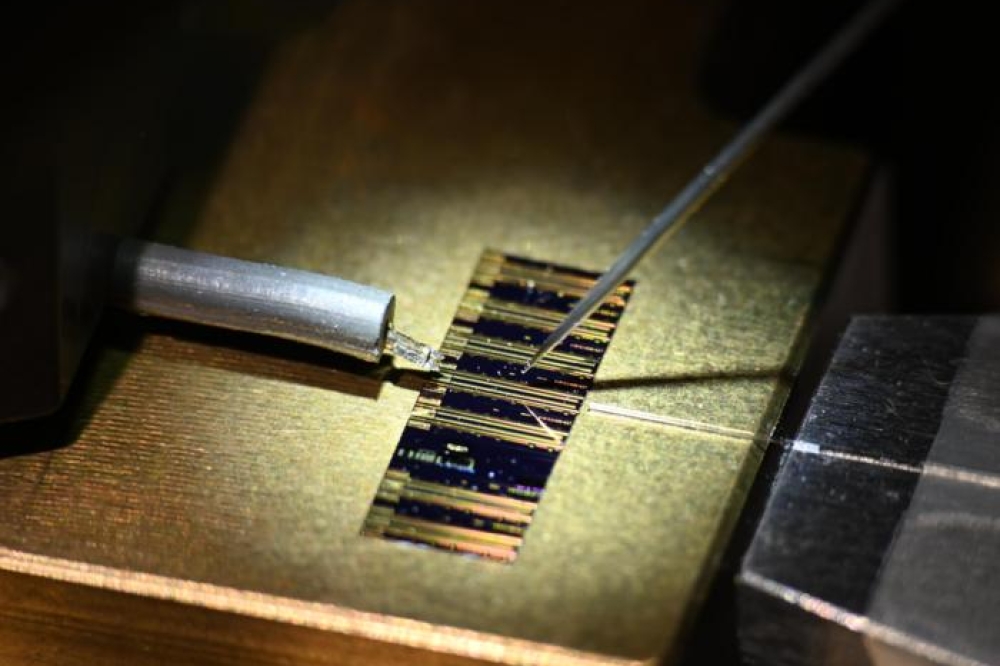Technical Insight
Analog Devices and Hittite - what next?
As Analog Devices buys Hittite, Compound Semiconductor talks to Strategy Analytics analyst, Eric Higham, to find out what lies in store for RF players.
 The Analog Devices-Hittite deal strengthens Analog's RF and microwave expertise
Just as industry pundits were getting used to the RFMD-TriQuint merger, US signal processing heavyweight, Analog Devices, swoops in and buys RF, microwave and millimetre wave IC designer, Hittite, US, for a hefty $2 billion.
Described as the industry's biggest acquisition of a US IC manufacturer so far this year, the deal saw Hittite's shares rise by 28.6% and Analog's increase by 6% shortly after its announcement. And for most, the move makes a lot of sense.
As Analog chief executive, Vincent Roche, emphasised again and again in his post-announcement investors call: "The addition of Hittite increases our presence across the ent `ire frequency spectrum... The timing is good and there's a lot of growth left in all these markets."
Analog Devices is well-known for its signal processing chips used in consumer products including automotives, mobile phones and tablets. Meanwhile, Hittite manufactures high frequency chips for military and satellite communications. Consequently the acquisition clearly fulfils the former's aspirations to offer high frequency chips and other signal processors in a broader range of applications.
As Strategy Analytics analyst, Eric Higham, puts it: "Analog Devices has been talking about getting into the RF space, and now with Hittite, it has definitely become a RF company."
As many in the industry have highlighted, Analog can now add Hittite's high performance RF and microwave products to its existing range of RF products, and draw on its own and Hittite's established partnerships to boost combined market share.
"Where each company has least market strength, the other can step in and should have the relationships to at least got products reviewed," says Higham.
The analyst now expects Analog to start offering more products in 'bundles'. "The company will be saying: 'not only can we provide you a component in that frequency, but we can talk about the signal processing and systems as well'," he says.
And crucially, the deal also outlines an interesting industry trend. "This is the last frontier for integration that everyone is looking at," adds Higham. "It's starting to pull... the low signal processing functions through to the high radio frequencies. Analog Devices isn't a Qualcomm, but this is a start."
Financial strength
But it's not all about expanding the company's reach across the entire frequency spectrum; Analog's acquisition of Hittite also strengthens its financial performance. According to Higham, Hittite has long been the 'darling of the RF industry' due to its consistently high gross margins and operating income. "Plug the company into Analog Devices and this expands all of those financial metrics," he says.
The Analog Devices-Hittite deal strengthens Analog's RF and microwave expertise
Just as industry pundits were getting used to the RFMD-TriQuint merger, US signal processing heavyweight, Analog Devices, swoops in and buys RF, microwave and millimetre wave IC designer, Hittite, US, for a hefty $2 billion.
Described as the industry's biggest acquisition of a US IC manufacturer so far this year, the deal saw Hittite's shares rise by 28.6% and Analog's increase by 6% shortly after its announcement. And for most, the move makes a lot of sense.
As Analog chief executive, Vincent Roche, emphasised again and again in his post-announcement investors call: "The addition of Hittite increases our presence across the ent `ire frequency spectrum... The timing is good and there's a lot of growth left in all these markets."
Analog Devices is well-known for its signal processing chips used in consumer products including automotives, mobile phones and tablets. Meanwhile, Hittite manufactures high frequency chips for military and satellite communications. Consequently the acquisition clearly fulfils the former's aspirations to offer high frequency chips and other signal processors in a broader range of applications.
As Strategy Analytics analyst, Eric Higham, puts it: "Analog Devices has been talking about getting into the RF space, and now with Hittite, it has definitely become a RF company."
As many in the industry have highlighted, Analog can now add Hittite's high performance RF and microwave products to its existing range of RF products, and draw on its own and Hittite's established partnerships to boost combined market share.
"Where each company has least market strength, the other can step in and should have the relationships to at least got products reviewed," says Higham.
The analyst now expects Analog to start offering more products in 'bundles'. "The company will be saying: 'not only can we provide you a component in that frequency, but we can talk about the signal processing and systems as well'," he says.
And crucially, the deal also outlines an interesting industry trend. "This is the last frontier for integration that everyone is looking at," adds Higham. "It's starting to pull... the low signal processing functions through to the high radio frequencies. Analog Devices isn't a Qualcomm, but this is a start."
Financial strength
But it's not all about expanding the company's reach across the entire frequency spectrum; Analog's acquisition of Hittite also strengthens its financial performance. According to Higham, Hittite has long been the 'darling of the RF industry' due to its consistently high gross margins and operating income. "Plug the company into Analog Devices and this expands all of those financial metrics," he says.
































